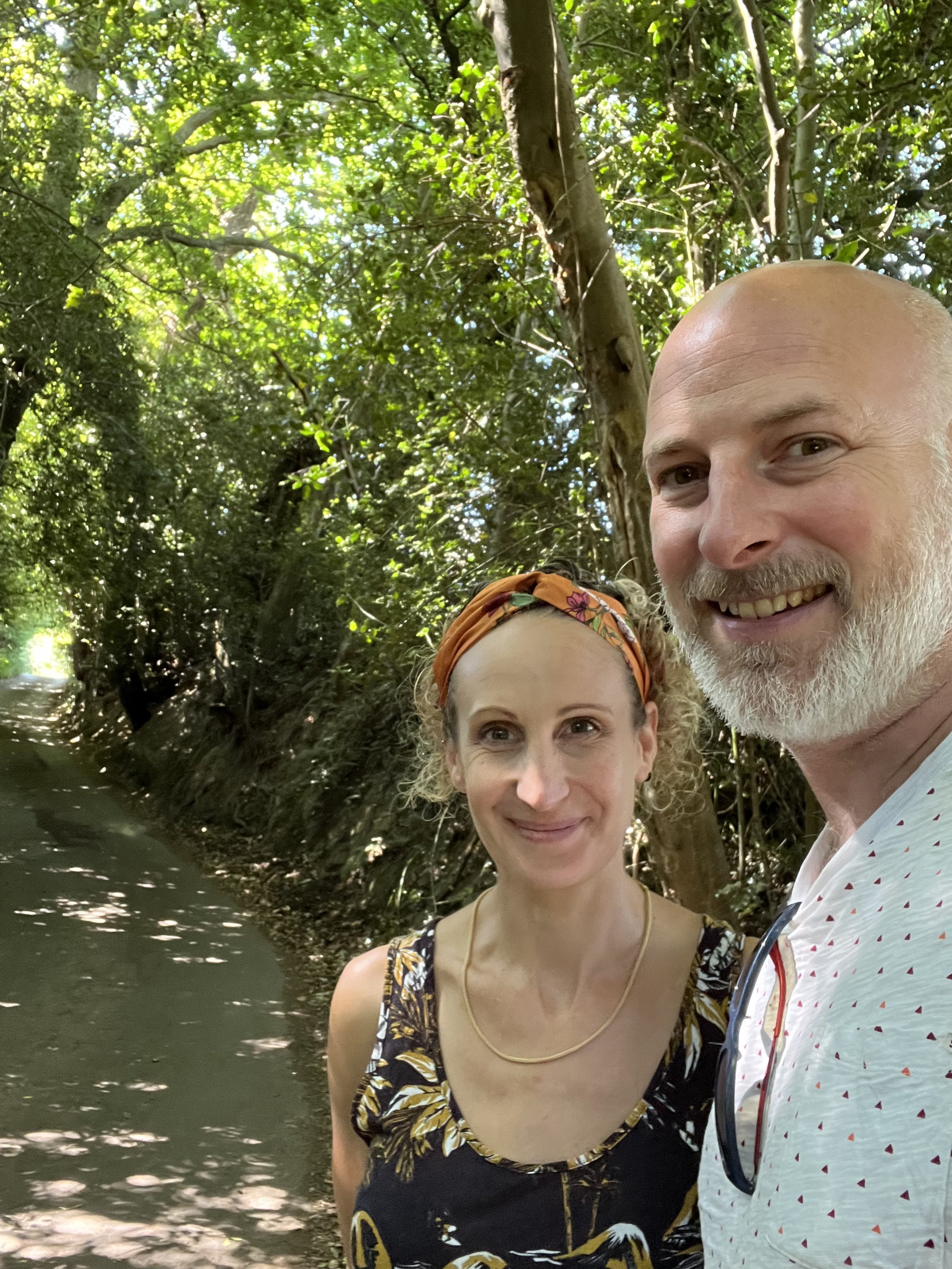My approach to pain recovery
I take a whole-person approach, focusing on how your body, mind, and environment interact to shape your experience of pain. My work combines the latest pain science with practical strategies that are both evidence-based and deeply human-centered.
Key Elements of My Approach:
1. Understanding Your Pain
We'll explore how your story, biology, and environment affect your pain.
You'll learn what pain is, why it stays, and how to change it.
2. Practical, Evidence-Based Strategies
I draw on tools like Graded Motor Imagery (GMI) to gently retrain your brain and body’s response to pain.
Through tailored exercises, graded exposure, and guided movement, we’ll create a plan that feels safe, achievable, and effective.
3. Education as Empowerment
Knowledge is powerful. My approach is grounded in the principles of the Explain Pain framework (Pain Neuroscience Education), helping you understand the science of pain and how it applies to your life.
You’ll leave our sessions with confidence and clarity about your recovery journey.
4. Teaching and Collaboration
In addition to working with clients, I’m deeply involved in teaching healthcare professionals through post-graduate courses on pain.
This includes teaching the influential Explain Pain course, as well as mentoring clinicians in applying Graded Motor Imagery in their practice.
What You Can Expect:
A safe and supportive space to share your story.
A collaborative approach where your goals guide our sessions.
Clear, practical strategies tailored to your unique experience.
A blend of science-backed education, movement, and coaching.
Move forward with confidence: Whether dealing with chronic pain or other conditions, gain tools and support to proceed confidently.

Get Started
My professional journey
I’m Tim Beames, a Chartered Physiotherapist, educator, and author with over two decades of experience in helping individuals navigate complex and persistent pain conditions. My approach combines scientific expertise, practical strategies, and a deep commitment to empowering clients and healthcare professionals alike.
Qualifications and Background
MSc in Pain: Science & Society (Distinction) – King’s College London
BSc (Hons) Physiotherapy – Brunel University
I’ve dedicated my career to understanding the complex interplay between the body, mind, and environment in shaping our experience of pain. Over the years, I’ve worked across NHS, private practice, and global educational settings, refining a holistic, evidence-based approach to recovery.
Clinical Work
In my clinical practice, I specialise in treating people with conditions such as:
Chronic Pelvic Pain Syndrome (CPPS)
Complex Regional Pain Syndrome (CRPS)
Neuropathic Pain
I work collaboratively with my clients, focusing on education, movement, and tailored strategies that address the unique physical, emotional, and environmental factors influencing their pain experience.
Teaching and Education
Education is a cornerstone of my work. I’ve had the privilege of teaching healthcare professionals worldwide, delivering both post-graduate courses and bespoke training programs. Over the years, I have:
Delivered over 300 pain-related post-graduate courses in 35+ countries
Taught the globally recognised Explain Pain course to 5000+ participants
Specialised in teaching Graded Motor Imagery (GMI), including co-authoring the Graded Motor Imagery Handbook
Served as a visiting and associate lecturer at institutions such as King’s College London, University College London, and University of Applied Sciences Utrecht
I’m also the European Technical Director for the Neuro Orthopaedic Institute (Noigroup), where I contribute to advancing pain education globally.
Presentations and Conferences
I’ve had the honor of presenting at numerous international conferences, including events hosted by:
The International Association for the Study of Pain (IASP)
The European Pain Federation (EFIC)
The British Pain Society
The San Diego Pain Summit
These opportunities allow me to share knowledge, collaborate with global experts, and stay at the forefront of pain science advancements.
Writing and Publications
I’ve co-authored several influential resources, including:
Graded Motor Imagery Handbook (2012) with David Butler & Lorimer Moseley
Cervical Spine Chapter in The Management of Cervical Spine Disorders in the Maitland Vertebral Manipulation (2013) textbook
My writing bridges the gap between research and clinical practice, providing both professionals and clients with actionable insights into pain recovery.
Bigger Projects and Collaborations
I’m currently involved in projects that push the boundaries of pain education and recovery:
Pelvic Pain Matters: Co-founder, raising awareness and care for male pelvic pain.
Le Pub Scientifique: Co-founder, organising global events for pain knowledge sharing.
These projects promote collaboration and better pain outcomes.
Podcasts & Live Discussions
I’m passionate about sharing knowledge and fostering meaningful conversations about pain recovery. I’m actively involved in several platforms where I connect with experts, share insights, and explore innovative approaches to understanding and managing pain:
🎙️ The Pain Podcast (Le Pub Scientifique)
Conversations with experts about pain recovery.
Listen Here🎙️ Pelvic Pain Natters - Men's Pelvic Pain Podcast
Focuses on male pelvic pain.
Listen Here📺 NOI Clinical Discussions
Live chats with experts on YouTube
Watch Here
My Philosophy
I believe in knowledge and connection. My work aims to:
Empower with pain knowledge
Provide tools for change
Create support: Environment for recovery and growth
Let’s take the next step together.
My work is shaped by the amazing people I've met and learned from.
Experts: Learning from pain scientists like Professor Lorimer Moseley and leaders like Dr. David Butler. They challenge old ideas.
Clinicians: Inspired by Stephanie Poulton, Karl Monahan, Dr. Morten Hoegh, and Robin Blake.
Clients: Motivated by the strength of people like Jane, Mary, Dom, Martha, and Jesper.
A Partnership in Recovery
These bonds create a practice based on empathy and collaboration. Recovery is a partnership, and it's a privilege to be alongside you.
My inspirations
Jane - A source of recovery, resilience, and strength.
World-renowned pain experts:
Professor Lorimer Moseley – Known for "Explain Pain"
Luke Bongiorno – Owner of Noigroup
Joanna Taylor – Ops Director, Noigroup Europe
Thought Leaders
Dr. David Butler - Founder of Noigroup and co-author of Explain Pain and GMI handbook
Juliet Gore - Former owner and editor of Noigroup
David Bolton - Leading musculoskeletal physiotherapist with over 50 years of clinical experience
Robin Blake - a great friend and mentor
Incredible manual therapist
Life-long learner







